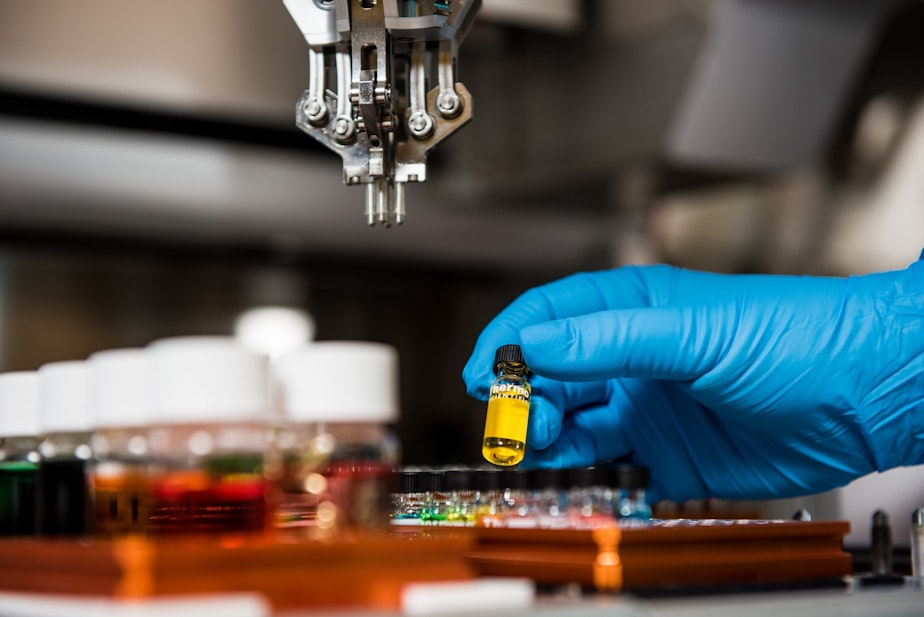Checking in with the Seattle woman who took the first dose of an experimental coronavirus vaccine

It's been one month since the first person took the first dose of an experimental coronavirus vaccine in Seattle.
So far, Jennifer Haller says she feels “great.”
“Yeah, I don't know if I'm feeling anxiety, but I mean, it's clear — life is not going to get close to normal until we find a vaccine,” Haller told KUOW’s Angela King.
“And that's really hit home for me. Certainly the importance of the steps that I've taken to participate in this study and the steps that many, many others are taking to get us closer to that vaccine.
“It is interesting that most of our hope right now seems to be on vaccine, which is who knows how far out -- 18 months, two years, 12 months?” Haller continued. “I don't know.”
Haller is one of 45 people participating in the trial through the Kaiser Permanente Washington Health Research Institute. She began getting a series of shots in late March. Now that she is done with the injections, she'll spend the next year undergoing blood draws to see how her body is responding to the vaccine.
The vaccine doesn't contain any live or dead virus cells, so she cannot get the virus through the shots. NPR previously reported that the vaccine Haller is testing was initially developed by the National Institutes of Health, along with the Massachusetts-based biotech firm Moderna, Inc.
She was warned about a range of side effects from the injections, but each time was the same.
Sponsored
“My arm was sore the next day. But besides that, everything else has been fantastic,” Haller said.
“There's a ton of risks in the in the 45-page release that I signed,” she continued. “But, you know, if I'm gonna worry about a particular one of those risks, I'm probably just not the right person for the study and I just wanted to get this going and get something kicked off so that we can move forward.”
In the meantime, Haller notes that aside from a sore arm, things haven’t changed much for her middle-class family in Ballard. She feels lucky for that. She's been able to spend plenty of time with her two teenagers.
“I feel like we're gonna look back on this time and we're gonna think, ‘You know, think about how wonderful it was how we got to spend time together and we got to slow down and we got to kind of rethink our priorities and you know, all these great life things that we got to do.'
“I don't know what to do with that,” she said. “That's embarrassing. For me, that's difficult because that's not the experience of many Americans right now."
Haller pointed to the high number of people who were living paycheck-to-paycheck even before the Covid-19 crisis, and expressed concern for undocumented people who won't be eligible for federal assistance.
"This is a real dichotomy of class or a privilege right now," she said. "So I just, in doing this, I really want to think about those that are actually having a hard time right now and their lives are severely impacted.”



